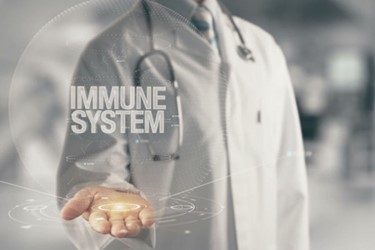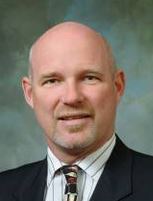Phase 1 Trial Targets The Immune System, Not The Cancer

By Ed Miseta, Chief Editor, Clinical Leader

INmune Bio is an immunology company that president and CEO RJ Tesi notes is focused on cancer – for now. That’s an important distinction, as the products INmune is developing will eventually have use outside of the oncology space. INmune’s focus is on the innate immune system, which is part of a system that has two components - adaptive and innate. Until recently, Tesi says most activity seemed to be focused on the adaptive side, because of the attention being paid to CAR-Ts and checkpoint inhibitors.
“The innate immune side has been largely ignored,” says Tesi. “We are finally beginning to see an increased interest in it. Today, INmune is focused on two particular cells in the innate immune system: The natural killer cells and myeloid-derived suppressor cells (MDSCs).”
MDSCs were first discovered in 2006, but did not receive much immediate attention. Eventually researchers realized that MDSCs were a good predictor of resistance to immunotherapies, primarily checkpoint inhibitors. In other words, if you’re a patient with melanoma who has a low number of MDSCs in your blood, there is a very good chance you are part of the 30 percent of patients who respond to checkpoint inhibitors. A high number of MDSCs means you’re part of that 70 percent who doesn’t respond.
“MDSCs have become one of the best predictors of failure of checkpoint inhibitors,” states Tesi. “That is where the field of oncology is focused right now. Everyone is interested in that 70 percent who are resistant and they are looking for ways to overcome that resistance. Targeting MDSCs is one of the best ways to do that.”
Your Type Of Cancer Is Irrelevant
 Tesi refers to the MDSC as a protector cell. It is found in oncology patients, but does not exist in individuals who do not have cancer. It produces a suppressive shield around the cancer that prevents immunotherapies from reaching tumors. A patient could have the best T-cells in the world, but if they have MDSC that produce an effective immunosuppressive shield, the MDSCs will block immunotherapies and protect the tumor.
Tesi refers to the MDSC as a protector cell. It is found in oncology patients, but does not exist in individuals who do not have cancer. It produces a suppressive shield around the cancer that prevents immunotherapies from reaching tumors. A patient could have the best T-cells in the world, but if they have MDSC that produce an effective immunosuppressive shield, the MDSCs will block immunotherapies and protect the tumor.
“Destroying that shield is what INmune is trying to do,” says Tesi. “By getting rid of the MDSCs, we are getting rid of those protectors, so as to be able to knock a hole in the wall and allow the treatments to enter. That should allow immunotherapies and the body’s own immune cells to get to the tumor.”
Tesi says he does not care what type of cancer a patient has. “The first question many researches like to ask is what type of cancer a patient has,” says Tesi. “We do not worry about that because we are not treating the cancer. We are treating the immune system. This is where oncology treatments are heading, and we may be the first company to articulate it this way. We are beginning to think of the immune system as a different organ or ecosystem that needs to be targeted for effective cancer therapy. For 50 years the industry tried to focus only on the cancer. The results have been disappointing. To form an effective treatment, the immune system has to be involved.”
Convince The Ethics Committees
Tesi notes his company faces three major challenges in developing this treatment. The first is fundraising, a problem common to all small companies. While he says the company is currently past that challenge, INmune is a small company and funding is always a consideration.
The second challenge relates to patients. Tesi says there is currently a lot of competition for oncology patients in Phase 1 trials. He attributes this challenge to large pharma companies (particularly Merck and BMS) in the checkpoint inhibitor space. He notes there are six approved checkpoint inhibitors with another six (or more) in development.
“As a result, there is a lot of competition for patients,” he says. “Our clinical development is performed in the U.K. and Australia, and we are facing a lot of competition for patients. When you find the right patient, you still have to get them interested in your therapy and your trial. But, I do think we are in a good position because we have a novel treatment strategy that patients can relate to.”
Still, recruitment will always be a challenge, especially for small companies competing against Big Pharma. To get the patients he needs, Tesi employs two strategies. The first is to try and include patients that the other companies exclude. INmune does that by having very broad inclusion criteria, so as to include as many patients as possible. The second is to get the clinician in charge of treating the patient interested in the treatment and the trial. Tesi believes the clinician is the most important gatekeeper. If a clinician thinks the trial is interesting and useful, they will be helpful in referring patients to the trial.
The third challenge involves ethics committees. INmune’s treatment is still new to an industry that has always targeted specific types of cancer. As a result, Tesi notes IRBs and ethics committees are still a little uncomfortable with his approach. The main problem he has with ethics committees is they keep asking for cancer endpoints. Since INmune is addressing the patient’s immune system, the trial design does not track the tumor burden as an end-point. The standard of success in an INmune trial is lowering the number of MDSCs.
“The goal of our Phase I trial is not to cure cancer,” he states. “It’s to make sure our drug is tolerated well by the patient and is doing what it was designed to do, which is lowering the patient’s MDSCs. It took some time and effort for us to educate the ethics committees on why we were not looking at tumor growth or shrinkage, and why that wasn’t irresponsible on our part. Our focus is on reprogramming the patient’s broken immune system.”
INmune is conducting three-dimensional immune profiling of the patient’s blood. This entails performing two, 15-color flow studies of the immune cells and measuring 92 chemokines/cytokines in a patient’s blood before, during, and after treatment. This gives the company a complete view of what is happening to the patient’s immune system.
Rely On Partners
INmune’s trials are being conducted in academic medical centers as Tesi believes these institutions are where patients with advanced cancer and resistant cancers are referred for therapy. Dedicated cancer centers are able to identify the patients he needs, while also being more accepting and understanding of the company’s treatment. Although physicians tend to embrace the biotech industry and cutting-edge science, Tesi finds them to be more conservative than academic centers in their choices regarding patients. In pursuing a new treatment option, you often need to locate patients who have exhausted typical treatments. Those patients tend to concentrate in academic centers.
INmune is a small company with a small number of employees. That means the company relies on partners to provide the specialized expertise needed at different points in the development process.
“A small company can’t afford to own all the resources it needs,” states Tesi. “We have to rent them, and that means we have to depend on vendors. We set strategy and then manage our vendors, relying on them to become our trusted partners.”
Tesi also serves as the CMO for INmune, and for that reason he interacts directly with the company’s CROs. INmune uses a functional service provider (FSP) model that has uses different providers to perform a myriad of tasks including patient recruitment, central laboratory facilities, and supply/logistics. Tesi describes the model as an “incredibly complicated vendor ecosystem.”
“Considering our size, I believe we would get lost if we tried to utilize a large, one-stop shop,” he says. “My experience has convinced me that the largest CROs are not particularly well-suited for smaller companies. I also have a real bias towards experts. When I outsource something like logistics, I want someone working for me who specializes in that task. I want someone who is performing that function 24/7. Managing a series of smaller vendors requires a bit more work, but I am very comfortable with the results.”
Finding the right partners can be a difficult and frustrating experience. Tesi notes everyone at INmune will seek out recommendations from their personal networks. When a good vendor is located, Tesi will focus on other partners the company works with. Although the process can be frustrating at times, he believes it is worth the extra effort. “When you get the right team in place, they are a joy to work with,” he says.
Pharma companies are also potential future partners, and Tesi notes this is part of the INmune’s strategy. Checkpoint inhibitors have revolutionized the treatment options for certain types of cancers. Still, they are not perfect. Because of MDSCs, only 30 percent of patients respond to these treatments. The future of oncology lies in being able to successfully treat the other 70 percent of cancer patients whose tumors are resistant to checkpoint inhibitors.
“Our Phase II trial will dose patients with a combination therapy,” adds Tesi. “We are going to treat them with a checkpoint inhibitor at the same time administer our product (INB03). INB03 should knock down the MDSCs and dissolve that immunosuppressive shield protecting the tumor to allow them to become sensitive to the checkpoint inhibitor. We believe that is the future in many diseases where chronic inflammation is part of the pathology. A lot of diseases occur because the immune system is not behaving normally, and we are only beginning to understand that. I think this approach of reprograming the patient’s immune system back to normal will become more popular in metabolic, cardiovascular, and neurologic diseases as well. This is the beginning of a huge change in how we treat patients, and I think we’re on the leading edge of it.”
